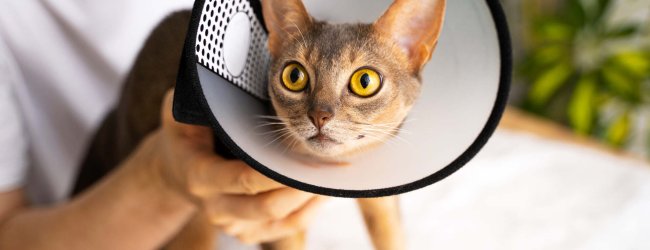 Approved by Dr. Dwight Alleyne, DVM
Approved by Dr. Dwight Alleyne, DVM Bad Breath in Dogs: What’s Causing It & Why
Ever dreaded a "Welcome home!" kiss or if your dog tries licking you...because their breath just smells so funky? Turns out, it could be due to your buddy getting some extra snacks around town - or a more serious health issue. Let's find out.
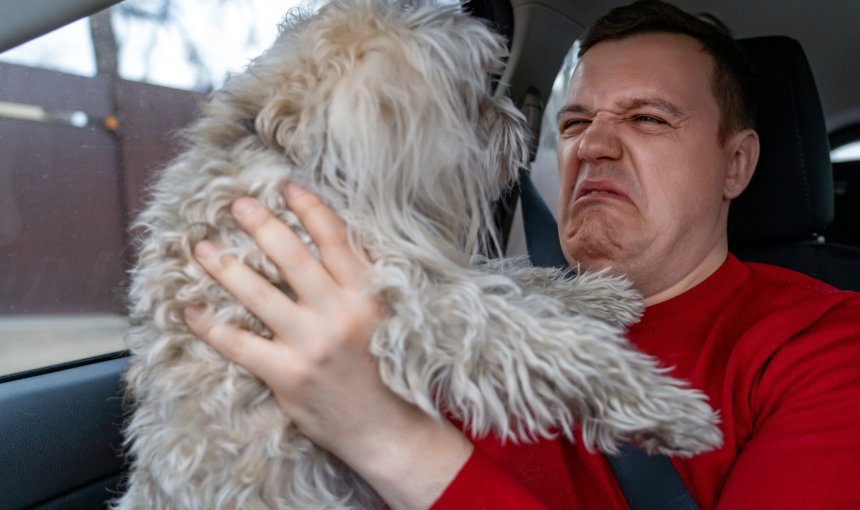
You definitely aren’t the only dog parent to snuggle up to your buddy on the couch – and end up nearly gagging from the smell as they lick you. Turns out, bad breath in dogs isn’t 100% just a “part of life” as a dog parent. In some cases, it could be a sign of a bigger problem affecting your buddy’s health and well-being.
So let’s dive into why your dog’s breath might be kicking up a stink, what concerning signs to watch out for, and how to figure out if it’s because your dog’s eaten something gross around your neighborhood.

Find out how your dog spends their time.
Read moreThe #1 cause for bad breath in dogs: Extra “snacks”
Now some amount of bad breath isn’t a cause for concern. But if your buddy’s breath has graduated from off-putting to…well, just about unbearable, it may be because your dog’s:
- Eaten something gross, including their own poop, another animal’s poop, roadkill, or even rotten food.
- Eaten something toxic, like certain poisonous plants, cigarettes, or licked a bit of pesticide or some other harmful substance.
- Gotten something stuck in their mouth, including household objects, toys, ropes, sticks, splinters, cloth, and even string.
Now the reasons behind why your dog is eating such…weird things could vary from anxiety to feeling isolated to just learned behaviors. Or your dog could just be teething and needs a little extra attention around their chew toys.
But the important question is…
Where is my dog coming across all these…extra “snacks”?
For both indoor and outdoor dogs, you’ll find it helpful to do an extra thorough check of:
- Your garbage bins,
- Under your dining tables,
- Your kitchen counters,
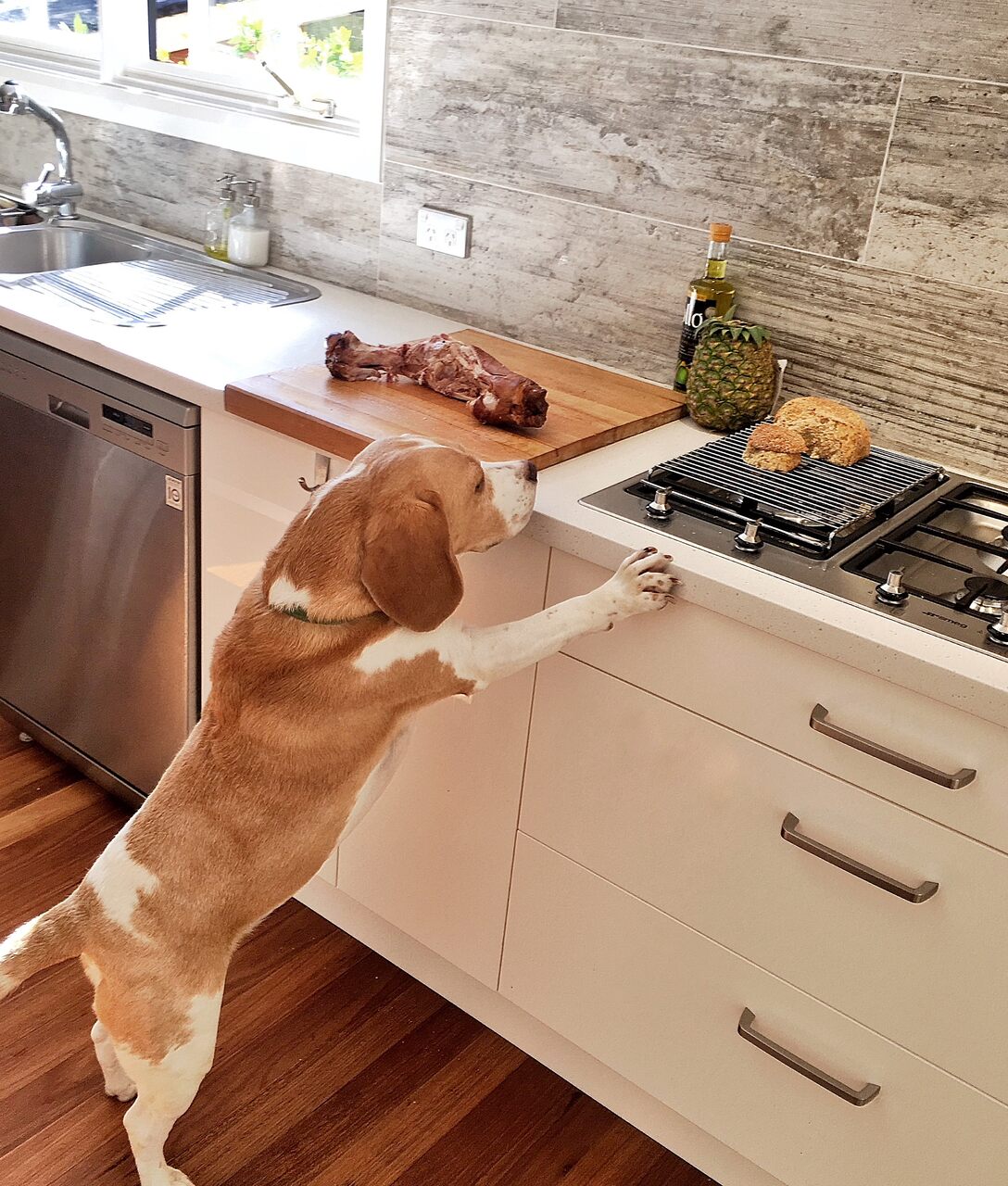
- Your other pets’ litter boxes (especially if you’ve got a cat at home),
- Where your dog tends to do their business,
- Other spots in your house like your backyard and garage, which might include toxic chemicals
- And even whether someone else has been feeding them a few extra bites, licks, and tastes – which could include something off-limits for dogs!
All of these are common spots your buddy might rummage or scavenge around for some extra snacks – which can lead to bad breath at best, and a serious illness at worst.
⚠️ But if your dog spends any amount of time by themselves outdoors, there’s no end to the places they could end up running into other “gross” or toxic substances.
Dogs tend to explore the world, nose-first – so whether it’s sniffing around in tall grass or rummaging through your yard (or your neighborhood), they’re bound to come across:
Garbage and compost | Including trash, compost piles, fertilizer, or even animal remains if they’re feeling extra adventurous. Licking or eating these doesn’t just cause bad breath, but might make your dog very ill from the harmful bacteria and toxins they come across. |
Other animals | Like deer, rodents, or even other dogs. In some cases, your buddy might end up…well, eating their poop. (Since it might contain nutrients – but also harmful bacteria.) |
Stagnant water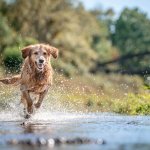 | Like from ponds or puddles nearby. This enables bacteria and parasites like Giardia to enter their system – causing bad breath and tummy trouble, all in one |
Food scraps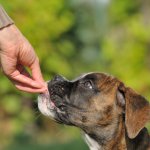 | From your neighbors’ houses or any nearby restaurants or the local hotdog stand or even picnicking families nearby. Whether it’s on the kitchen counter or the trash can, unattended food can be risky – especially if it’s spoiled or dangerous for dogs. |
“Chewable” objects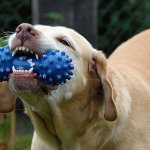 | Like socks, shoes, and toys that have seen better days indoors – or garden hoses, pipes, or sticks outdoors. Anything that leaves behind residue or bacteria can cause bad breath. |
That’s why it makes sense to figure out where your dog tends to spend most of their time.
If it’s at your neighbors’, your backyard where the squirrels tend to gather, or elsewhere around your neighborhood – all of these count as places where your dog might end up eating something they really shouldn’t. So if you’re aware of these spots, you’re now armed with the knowledge to:
- Prevent your dog from venturing nearby,
- Warn other pet parents to prevent a similar problem,
- Take a more active role in your buddy’s health, safety, and well-being.
💡 A GPS tracker can be a tremendously helpful safety measure to help you figure out where your dog’s off wandering. (Which we’ll cover in detail a little further below.)
Is bad breath in dogs a sign of illness?
Whether your buddy’s an active outdoorsy sort or more of a couch pug-tato, bad breath can strike from just about anywhere. And more often than not, eating something weird could either lead to one or more of these medical conditions.
Else, you might find your dog’s breath turning sour as a result of:
Dental disease
Which may result from your dog eating something gross or toxic – or if you’ve been skipping out on their dental care routine. Plaque and tartar buildup can lead to gum disease, tooth decay, and a foul odor.1
In more serious cases, oral tumors – especially in senior dogs – can lead to bad breath. These turn up as masses in your dog’s mouth, which can become infected (and cancerous) over time. So even if you’re brushing your dog’s teeth on the regular, they may still cause bad breath.
Watch out for signs like your dog excessively licking their lips or paws – or seeming more reluctant around meals. These might signal dental pain or difficulties chewing and swallowing.
Liver or kidney problems
If your dog’s breath smells like…well, poop or pee – it could be a sign they’ve eaten either their own poop or another animal’s. Else, it could spell trouble for how their liver and/or kidneys are functioning.2
Much like with us, these organs get rid of toxins and waste materials in dogs’ bodies. When they don’t work properly, these toxins might build up – leading to bad breath.
So if you’re dealing with a case of bad breath in dogs seemingly out of nowhere, take note. Watch out for symptoms like vomiting and diarrhea, since these might signal liver or kidney disease as a root cause.
Gastrointestinal issues
Ever heard of the term “garbage gut”? It’s actually a term vets use to describe the gastrointestinal problems dogs run into when they’ve eaten something from the trash, rotten food, or just something that their systems aren’t designed to handle.3
But besides eating something weird, problems in your dog’s digestive system, like acid reflux or other stomach issues, can also lead to smelly breath. In these cases, the smelly odor could be from your dog’s stomach acids rising up into their mouth.4
In other cases, feeding your dog raw or home-cooked meals may create some stomach problems. (Especially if it disrupts the good bacteria in their mouth or gut.) In these cases, your dog’s mouth may end up developing a Salmonella infection from any raw diets.
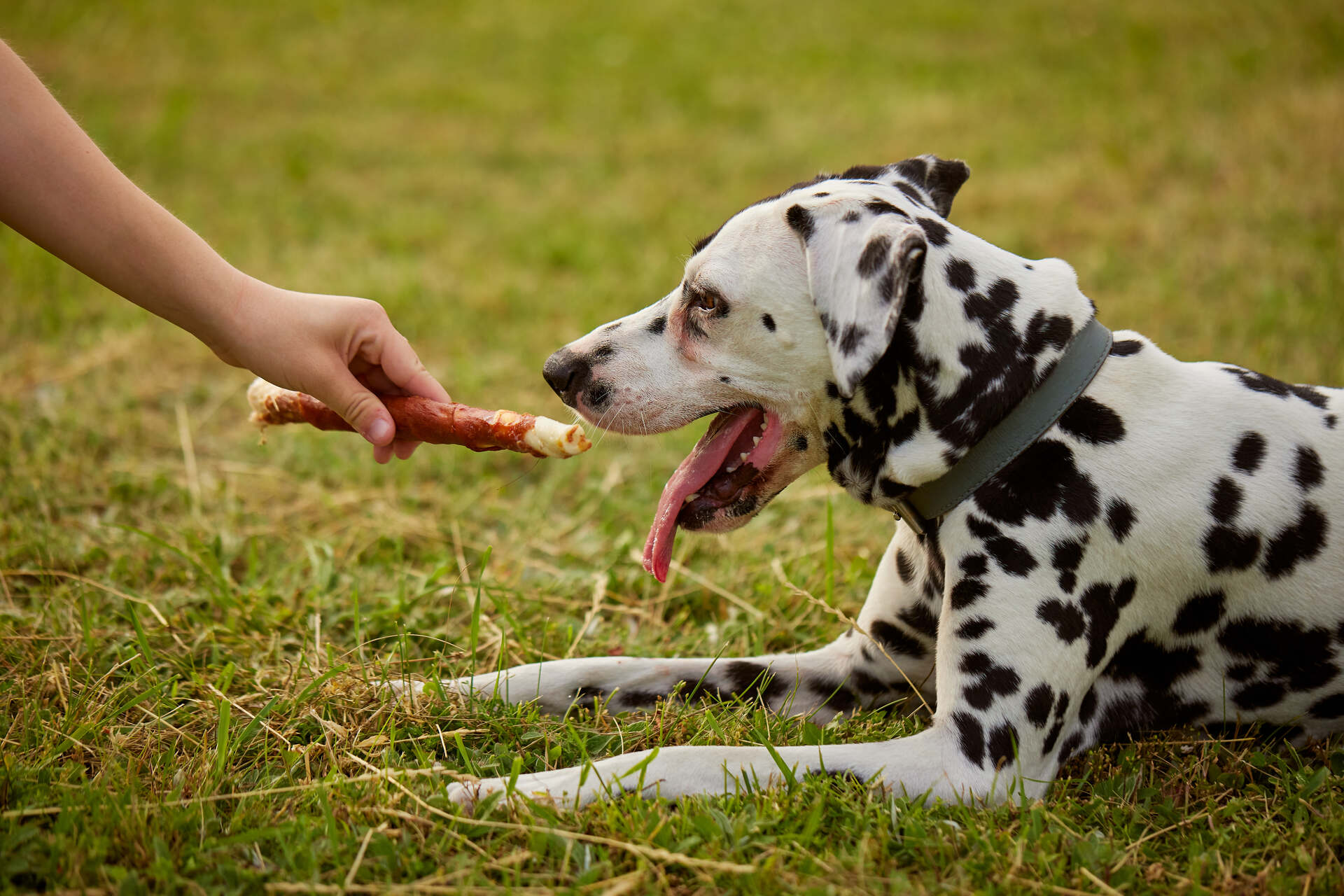
💡 See why it’s a good idea to stay aware of your dog’s whereabouts throughout the day?
You might be extra vigilant around your dog’s meals, but it could be that:
- They’re scavenging for food elsewhere – either from your trash or outside your property,
- Someone outside your household is feeding them – like your neighbors or even passersby.
All of which could lead to bad breath as an early warning sign that your dog’s come in contact with harmful bacteria if the food they’ve eaten is spoiled, contaminated, or just something they shouldn’t have eaten in the first place.
Diabetes
Diabetes is a complex condition where your dog’s body can’t properly regulate its blood sugar levels because it’s producing less insulin.6
- This leads to it breaking down fat for energy – leading to a buildup of chemicals called ketones.
- These ketones can change your dog’s breath to an unusually sweet, even fruity odor.
- Else, watch out for a smell that resembles nail polish remover, like acetone.
Other symptoms of diabetes in dogs might include unexplained weight loss – and peeing more than usual, even if your dog is drinking water like crazy.
When you should drop by your vet
If your dog’s breath improves from regular dental care, being extra careful with their food, and letting any temporary digestive trouble pass – you’re in the clear. But you should consider heading over for a checkup if you notice:
- Persistent bad breath, even with basic dental care or dental treats.
- A loss of appetite,
- Vomiting,
- Diarrhea,
- Excessive drinking,
- Frequent urination,
- Unexplained weight loss,
- Yellowing of your dog’s skin or eyes,
- Pee that has a “chemical” smell – like ammonia
All these could signal potentially more serious health conditions that need the support of your vet right away.
How your vet might treat bad breath in dogs
Your vet might begin by thoroughly examining your dog’s teeth, gums, and mouth to check for signs of dental disease, infections, or growths that could be causing bad breath.
If that doesn’t reveal much, they might recommend a blood test to check for any underlying health issues, like diabetes or liver and kidney problems.
Based on what turns out to be the culprit, your vet might recommend:
- A professional dental cleaning or even a tooth extraction, if necessary.
- Weekly to daily tooth brushing sessions with special dog-friendly products,
- Special dental chews, toothpastes, water additives, or toys that can help clean your dog’s teeth and freshen their breath,
- A special diet to help balance your dog’s mouth and gut bacteria, as well as prevent plaque buildup.
- Any special medications, including antibiotics, to help deal with any other infections or underlying illnesses.
🥦 It’s also a good idea to get the green light from your vet regarding what foods are best for your dog. They can also recommend steps you can take to prevent your dog from sneaking or scavenging food from elsewhere – which can make all the difference in helping your buddy’s breath stay fresh and clean.
How to watch out for “forbidden snack spots”
Now if your dog spends their time primarily indoors – you’re in good hands keeping an eye out for:
- Your garbage bins,
- Beneath dining tables,
- Your kitchen counters,
- And even your backyards
It’s a good idea to seal these off with baby gates wherever possible, or just make sure your dog never enters your kitchen unsupervised.
But for an outdoor dog – or for when you’re taking your indoor dog out on a walk…there’s no end to where they might snarf up something off the sidewalk or come home with a hefty chomp of something toxic.
🐶 So why not just strap a GPS tracker to your buddy’s collar – and let it do all the hard work for you?
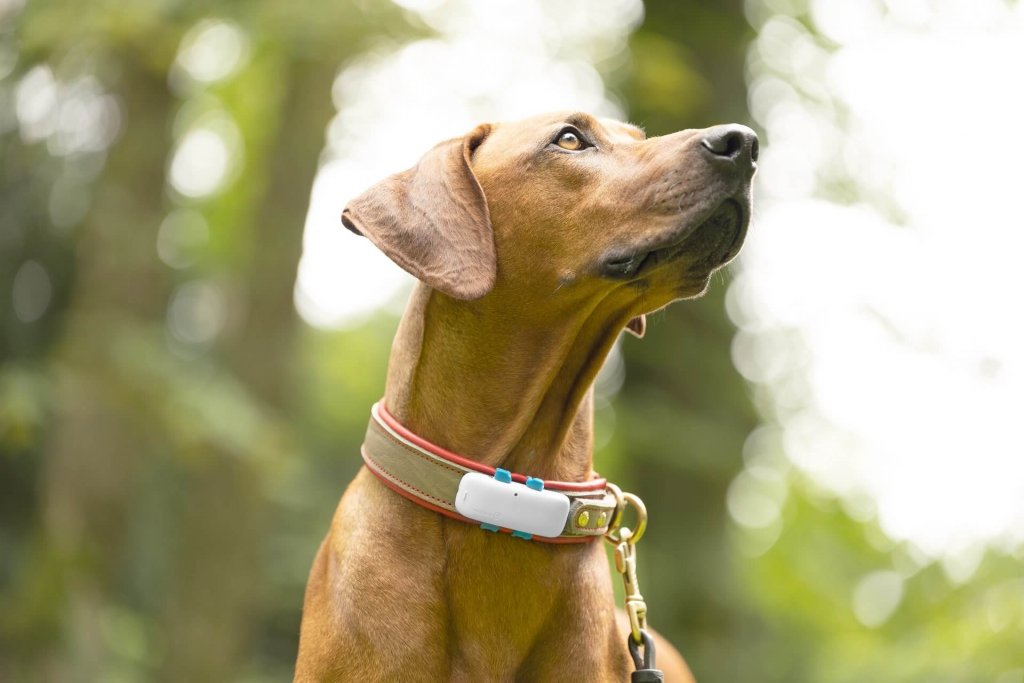
Loved and trusted by pet parents around the world, your trusty Tractive GPS helps you track your dog:
- In real-time,
- Over an unlimited range,
- Over a Heat Map of their most-frequented spots,
- And even while on vacation (or 175 countries if you’re on a Premium subscription)
All with just a glance at your phone.
No need to compromise on your buddy’s love for exploring the world, nose-first.
Just the peace of mind from knowing you can keep them safe and prevent any extra “snacking” – no matter where they’re off wandering.
Never dread a “Welcome home!” kiss again – with these tips
Bad breath in dogs might seem like just a part of life – but as a responsible dog parent, you’re now better informed about when it might signal a deeper health issue.
In fact, your dog’s breath can often signal to your vet that something might be amiss with their mouth, stomach, or elsewhere in their body. Especially if it persists – and is accompanied by concerning symptoms like:
- A loss of appetite,
- Vomiting,
- Diarrhea,
- Excessive drinking,
- Frequent urination,
- Unexplained weight loss,
- Yellowing of your dog’s skin or eyes,
- Pee that has a “chemical” smell – like ammonia
⚠️ All of which can signal dental problems, gastrointestinal trouble, liver and kidney disease, and even diabetes.
Why is my dog’s breathing smelling so bad?
Dental problems are usually the main cause of bad breath in dogs – usually because your buddy’s:
- Eaten something gross, like poop, pee, roadkill, garbage, or spoiled food
- Eaten something toxic, like harmful chemicals or cigarettes
- Gotten something stuck in their mouth, like a toy, cloth, rope, or even sticks
⚠️ Which, left undetected, can lead to worse stomach or organ trouble down the road – as your dog’s body tries to handle the harmful bacteria, chemicals, and toxins it’s attempting (and failing) to digest.
What steps can I take to prevent this?
Regular dental cleaning can help you spot any weird bits and bobs stuck in your dog’s teeth that much quicker and easier. Your vet can best advise you on what products you can use, like dog-friendly toothpastes, oral additives, dental powders, special dental chews, and even dental-friendly diets.
Likewise, monitoring what your dog’s eating – both indoors and outdoors – can go a long way. Especially if your buddy’s in the habit of sneaking bites or scavenging food from the trash when no one’s looking!
💡Which has never been easier to do – if you’ve invested in a Tractive device.
With just a glance at your phone, you can check a 24-hour log of what spots around town your dog’s spent most of their time. (30 days on a Premium subscription.)
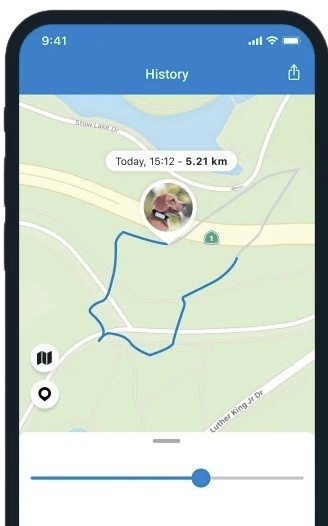
🐶 Helping you keep an eye on them even when you’re not around – and identifying any areas they might be:
- Coming across trash, roadkill, or other animals (and their poop)
- Getting fed by your neighbors, picnicking families, or passerby
- Scavenging for food and leftovers
All of which can lead to bad breath at best – and a serious illness (and hefty vet bill) at worst.
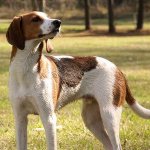
“We don’t have fencing around our property and our adventurous dog regularly gallivanted around our local town, inevitably ending up having eaten something horrendous.
Since putting the Tractive tag on her collar, we have had no trouble driving straight to her, wherever she might be, intercepting her before she can do herself any harm.”
– Ryan, AU (Source: Trustpilot)
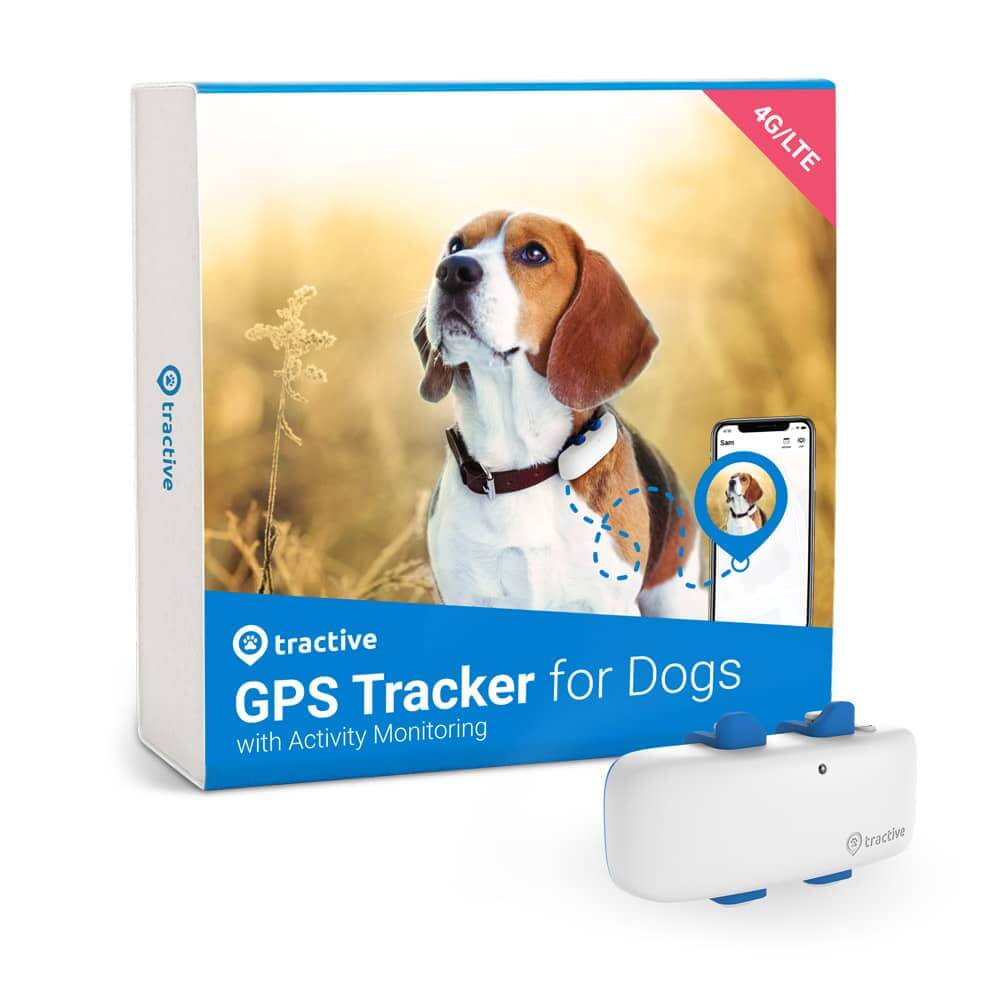
Always know where your dog is
Follow every step in real-time with unlimited range. Get alerts if they wander too far. Keep them happy & healthy with Wellness Monitoring. And let others – like walkers or sitters – keep an eye on your dog too.
Wondering how to get rid of bad breath in dogs at home? Here’s a video covering a few tips:
And if you’ve liked this post, share it with a friend or a loved one – and let’s help build a safer, kinder world for our furry friends together.
Your furry friend’s health and wellbeing means as much as to us as it does to you. So we’ve made it a priority to only share medically-relevant content on our blog.
This post was checked, double-checked, and medically verified by Georgia-based vet, Dr. Dwight Alleyne.

Originally from Long Island, New York, Dr. Alleyne began his career at a no-kill animal shelter before becoming a licensed veterinary technician. He graduated from Cornell University Veterinary College in 2006 and completed an internship at Purdue University.
Now practicing in Georgia, Dr. Alleyne specializes in soft tissue surgery and ultrasounds. He also writes pet health articles on his website, “The Animal Doctor Blog” (www.anmldrblog.com).
